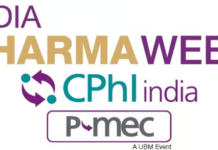New Delhi, February 17, 2017: Sun Pharmaceutical Industries, India’s largest drugmaker, reported its first fall in quarterly profits in a year on Tuesday, as pricing issues and supply constraints affected sales in the United States, its largest market.
Sun’s U.S. business faces increasing uncertainty as it struggles to fix quality control problems found by regulators at its key drug factories, and is the subject of a U.S. Department of Justice investigation into increases in drug prices.
On Tuesday the world’s fifth-largest generic drugs maker sought to allay those concerns by saying its focus was on high-margin ‘specialty’ products.
“The idea for us is to improve our supply and regain market share … our plan is to create a very successful specialty business,” billionaire founder and Managing Director Dilip Shanghvi told analysts on a conference call.
U.S. supplies have been hit over the past year after the Food and Drug Administration (FDA) found violations in manufacturing practices at Sun’s Halol factory in western India. Sun has spent months trying to resolve those concerns but the FDA outlined further problems with the plant in an inspection report in December.
Shanghvi said on Tuesday the company hoped to be able to fix the problems at Halol “over the next few quarters.”
Some other factories that the drugmaker took over with the acquisition of rival Ranbaxy in 2014 are still barred from supplying.
Sun said it was cooperating with a U.S. Department of Justice investigation, under which several drugmakers were subpoenaed last year. “We have followed the law in the U.S. and all our people have followed appropriate behaviour,” Shanghvi said.
Chief Financial Officer Uday Baldota said competitive pressures also continued to affect the U.S. business.
Sun earlier reported a 4 percent rise in U.S. sales in the final three months of 2016, but its total net profit fell to 14.72 billion rupees ($220 million) from 15.45 billion rupees in the same period of 2015. Analysts on average had expected a profit of 17.83 billion rupees, according to Thomson Reuters I/B/E/S Estimates.
The company’s majority-owned U.S. subsidiary Taro Pharmaceutical Industries Ltd last week reported a 15 percent drop in quarterly sales for the same period, mainly due to price erosion in the United States.
Changes to healthcare policy under President Donald Trump also look likely to affect companies
Corporate Comm India(CCI Newswire)























